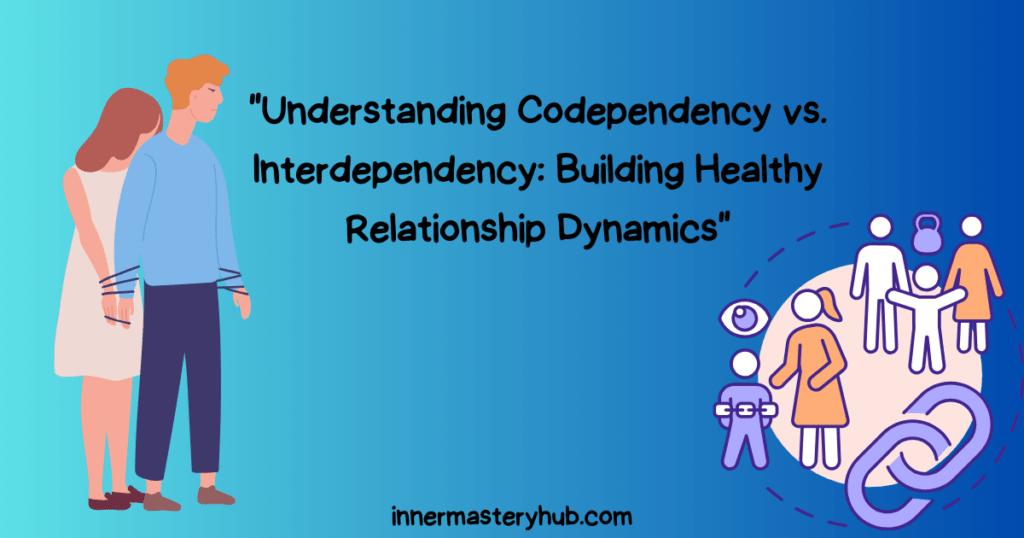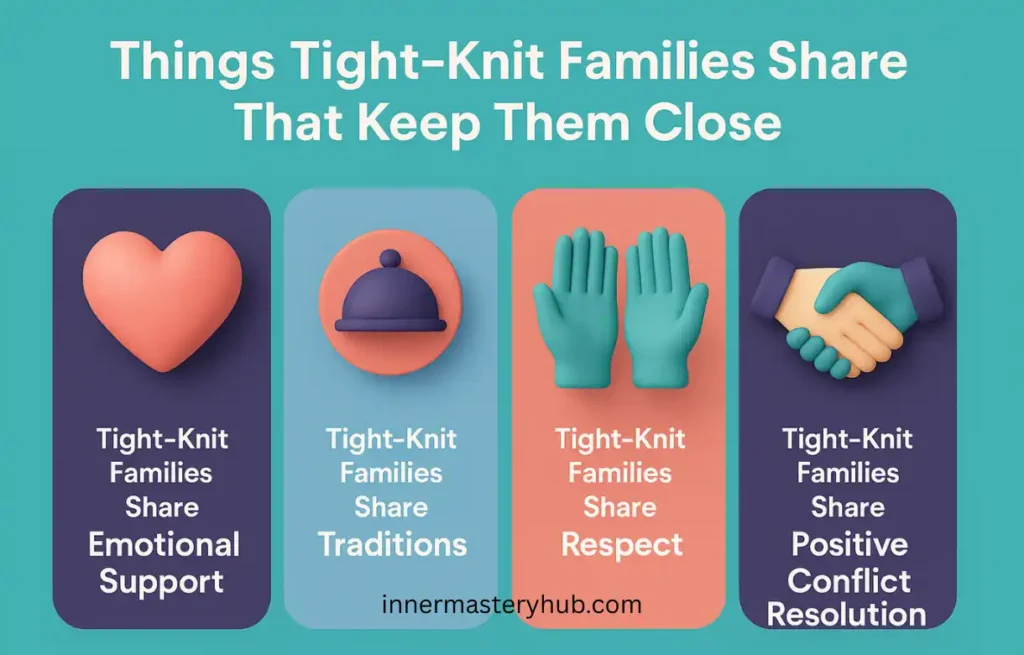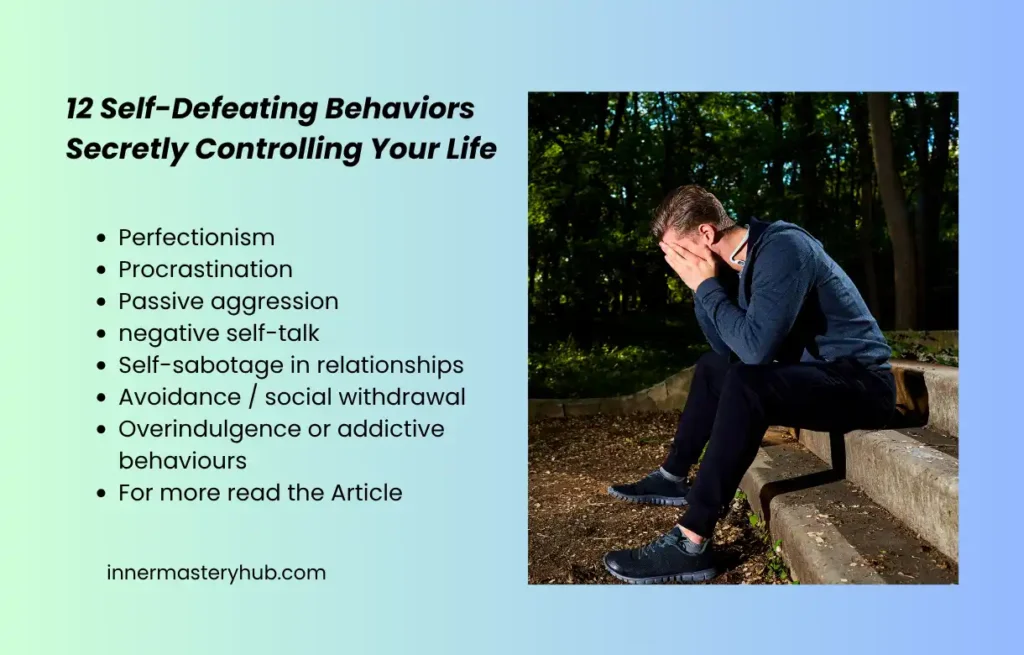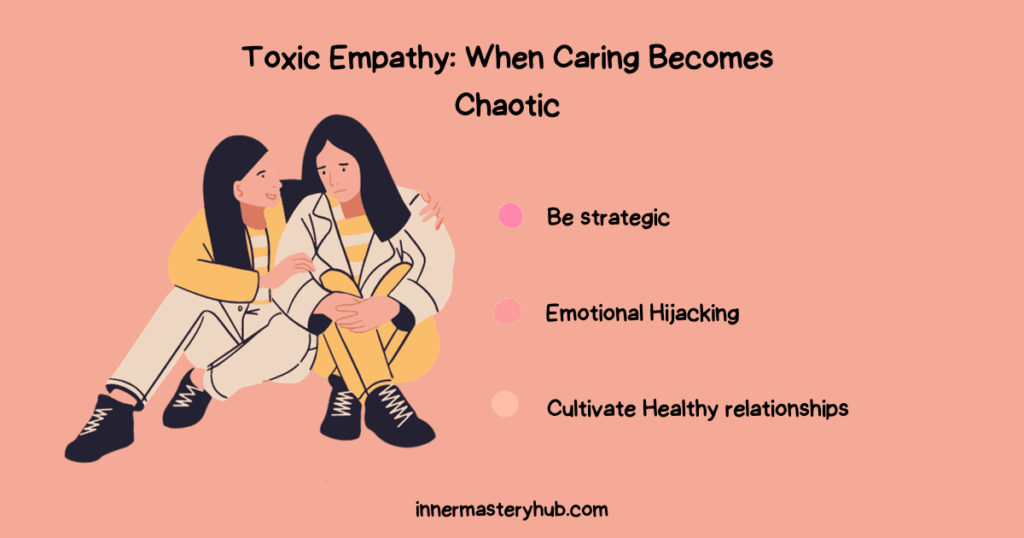Codependency Vs Interdependency: Are You in a Healthy Bond?

Despite their frequent interchangeability, Codependency and Interdependency have somewhat different definitions. One person becoming unduly dependent on another for their emotional and physical needs is known as Codependency, and it is a toxic interpersonal dynamic. Conversely, a healthy relationship dynamic in which two individuals are independent and supportive of one another is known as Interdependency.
What is Codependency?
Codependency is often rooted in childhood trauma or neglect. Codependent people may have learned to rely on others for their self-esteem and sense of worth. They may also have difficulty setting boundaries or saying no.
Example
Sarah is in a relationship with David, who has alcoholism. David often drinks too much and gets into trouble, but Sarah always bails him out. She excuses his behavior, lies to his friends and family, and covers up for him at work. Sarah’s behavior is enabling David’s drinking problem, and it is also taking a toll on her own mental and emotional health.
Because she takes too much responsibility for David’s welfare, Sarah is codependent. She tries very hard to make him happy because she feels bad and nervous when he is sad. Sarah’s actions are harming her as much as aiding David’s addiction.
Signs of Codependency in Relationships
Codependency can manifest in a variety of ways, but some common signs include:
- People-pleasing: Codependents often sacrifice their own needs to appease others, sometimes to the detriment of their own well-being.
- Enabling: Codependents have the potential to make others’ addicted or harmful behaviors possible.
- To feel safe, codependents may attempt to exert control over others.
- Low self-esteem: Codependents frequently believe they are unworthy of respect or love and have low self-esteem.
What is Interdependency?
A healthy relationship dynamic is interdependent when two individuals are independent and supportive of one another. In addition to being able to take care of themselves, interdependent individuals and couples also enjoy spending time with and providing emotional support to their relationships.
Example
The relationship between Alex and Beth is wholesome and mutually reliant. Both of them encourage one another’s hobbies and jobs. Even though they have friends and hobbies outside of their relationship, they still like to spend time together. Beth and Alex can have honest and open communication and have faith in one another to respect their own space.
In addition to supporting one another’s needs, Alex and Beth have separate identities and interests outside of their partnership, which makes their connection interdependent. They trust one another to respect their limits and can communicate honestly and openly.
Signs of an Interdependent Relationship
Some common signs of an interdependent relationship include:
- Healthy boundaries can be established by interdependent individuals when one partner is able to refuse requests when necessary.
- Mutual respect: Individuals who are interdependent honor one another’s needs and emotions.
- Trust: Interdependent People feel free to be themselves with one another and have faith in one another.
- Individuality: Interdependent People keep their identities and passions separate from their relationships.
Difference Between Codependency and Interdependency
Here is a table that summarizes the key differences between Codependency and Interdependency:
| Characteristic | Codependency | Interdependency |
|---|---|---|
| Focus | Other-centered | Self-centered and other-centered |
| Sense of responsibility | Exaggerated | Healthy |
| Boundaries | Poorly defined or nonexistent | Well-defined and respected |
| Communication | Dishonest and manipulative | Honest and open |
| Happiness | Dependent on the happiness of the other person | Independent of the happiness of the other person |
How to stop being codependent in your relationships
If you think you may be codependent, here are some steps you can take to overcome it:
1. Set Clear Boundaries
Start by defining what feels comfortable and what doesn’t. Learn to say “no” without guilt. Boundaries protect your mental health and create space for respect. When both partners are aware of their limits, emotional balance replaces unhealthy dependence, and mutual respect begins to grow naturally.
2. Focus on Self-Care
Prioritize your physical, emotional, and mental well-being. Engage in activities that bring you peace and joy, even if they are separate from your partner. Self-care strengthens self-worth, reminding you that you’re valuable on your own. Healthy independence helps you love without losing yourself.
3. Communicate Honestly
Express your feelings openly without fear of rejection. Honest conversations about needs and expectations help prevent resentment. When communication becomes clear and kind, both partners understand each other better, reducing misunderstandings that often feed Codependency.
4. Build Self-Worth from Within
Stop seeking validation from your partner. Recognize your strengths and achievements. Practice self-affirmation daily. When you value yourself, you rely less on others for approval. This shift helps you become emotionally independent and strengthens your relationship through confidence, not dependence.
5. Encourage Mutual Independence
Support your partner’s growth and maintain your own hobbies, friendships, and goals. Mutual independence allows both partners to thrive individually. When both grow separately and come together, they form a healthy interdependent bond built on respect, not neediness.
6. Recognize and Challenge Old Patterns
Notice when you fall back into codependent habits — like over-helping, guilt, or fear of rejection. Question these thoughts and remind yourself of your worth. Awareness helps you break old cycles and build healthier, more balanced relationship habits over time.
7. Seek Professional Help if Needed
Therapy can help identify deep-rooted issues that cause Codependency, such as childhood trauma or fear of abandonment. A professional offers tools to rebuild confidence, set boundaries, and develop emotional independence, helping you transition successfully from Codependency to Interdependency.

How to build Interdependency in Relationships
Here are some tips for building an interdependent relationship:
1. Communicate Openly and Honestly
Healthy communication is key. Share your thoughts, feelings, and needs clearly and listen actively to your partner. Open communication fosters trust, minimizes misunderstandings, and helps both partners feel valued, thereby strengthening the bond of Interdependency.
2. Set Healthy Boundaries
Respecting each other’s space and needs is vital. Set clear boundaries that allow both partners to maintain individuality while fostering mutual support. Healthy boundaries promote personal growth and prevent feelings of suffocation or neglect.
3. Support Each Other’s Growth
Encourage your partner’s personal growth and passions. Celebrate their achievements and offer emotional support during challenging times. When both partners are invested in each other’s success, it creates a balanced, interdependent relationship built on mutual respect and support.
4. Practice Self-Care
Prioritize self-care to maintain emotional and physical well-being. Taking care of yourself helps you bring out the best in yourself and in your relationship. When both partners are self-aware and self-sufficient, they can support each other in a healthy and balanced manner.
5. Be Vulnerable and Trusting
Sharing your vulnerabilities and trusting your partner fosters closeness. When both partners are open and honest with each other, it strengthens emotional intimacy and fosters a sense of security. Vulnerability enables deeper connection and understanding, which is essential for interdependence.
6. Collaborate in Problem-Solving
Work together as a team when facing challenges. Instead of relying on one person to fix everything, collaborate to find solutions. This fosters a sense of partnership, where both individuals contribute to the well-being and success of the relationship.
7. Respect Each Other’s Independence
While mutual support is essential, respecting each other’s individuality is crucial. Encourage personal interests, hobbies, and friendships outside the relationship. This allows both partners to feel fulfilled and prevents the relationship from becoming overly dependent.
What makes partnerships with narcissists more common among those who struggle with Codependency?
There are a few reasons why people with Codependency are more likely to have codependent relationships with narcissists.
- Codependent people must please others. Narcissists frequently gravitate toward those who are controllable and easy to please. Even if it means putting their own needs last, codependents often will do everything it takes to please their spouse.
- The self-esteem of codependents is low. People who lack a feeling of self and self-worth are frequently the targets of narcissists. Their initial display of love and appreciation for their lover would gradually give way to criticism and denigration.
- This kind of treatment may be more likely to be accepted by codependents who have poor self-esteem since they feel they don’t deserve better.
- Codependents fear being abandoned. In addition to being highly critical of their spouses, narcissists are frequently erratic. Because they often fear being abandoned, codependents may be more prone to continue in bad relationships with narcissists.
Codependence as Relationship Addiction
The similarities between Codependency and addiction are numerous. For example, codependents may experience withdrawal symptoms when they are separated from their spouse, have urges for them, and struggle to control their conduct around them. Codependents may also have a relapse after trying to escape an uncomfortable relationship.
Codependency and addiction differ primarily in that Codependency is not listed as a recognized mental health illness in the Diagnostic and Statistical Manual of Mental Disorders (DSM-5). However, there are mental health issues like substance abuse, anxiety, and depression that have been connected to Codependency.
For example, Codependency is now called “relationship addiction.” This means losing one’s sense of value in the relationship, which could lead you to fear its termination so much that you would be willing to sacrifice your life to keep it going.
Another significant difference is that Codependency is characterized by a psychological reliance on another person, but a physical need for a substance characterizes addiction. Nevertheless, Codependency and addiction can both be challenging to overcome. Consult a counselor or therapist if necessary.
How to Practice Emotional Control and Enjoy Interdependence?
It is possible to remain in emotional control and enjoy interdependence. Interdependence is a key ingredient in emotionally healthy relationships.
Here are some tips for remaining in emotional control while enjoying interdependence:
- Talk to your partner about your needs and feelings honestly and openly. This involves having the ability to communicate your demands, set limits, and say no.
- Politely, be assertive. This entails expressing your demands and desires in a clear, straightforward manner that is neither overly demanding nor confrontational.
- Saying no is acceptable if your partner’s demands are overwhelming you. If your partner asks you to do something you don’t have the time or energy to do, for instance, you could respond, “I’m happy to help you with that, but I need to finish this task first.”
- Setting boundaries is crucial if your partner’s actions are causing you discomfort. Saying “I understand that you’re trying to be helpful, but your criticism is making me feel bad” is one way to respond to your partner’s persistent criticism. I value your opinions, but please refrain from pointing fingers at me.
- Communicating your needs is crucial if you believe your partner is ignoring or neglecting you. Saying “I feel neglected lately” is one example. Spending time with you this weekend would be very appreciated.
- Seeking assistance is acceptable if you struggle to manage your emotions or communicate effectively with your partner. A therapist can teach you how to set boundaries, speak clearly, and express your needs in a healthy manner.
Remember, interdependence is a healthy dynamic in relationships. It is essential to be supportive of your partner, but it is also crucial to prioritize your own needs and maintain emotional balance.
Is there any healthy “dependence?”
Healthy dependence is a state of mutual reliance in which two people can meet each other’s needs while maintaining their individuality and autonomy. It is a balance and harmony in which people feel supported and loved.
Here are some examples of healthy dependence:
- A child relies on their parents for food, shelter, and love.
- A couple relying on each other for emotional support and companionship.
- A team of employees relies on each other to complete a project.
- A community of people relying on each other for mutual aid and support.
Healthy dependence is different from unhealthy dependence, which is a state of imbalanced reliance in which one person is overly dependent on another person for their emotional and physical needs. Unhealthy dependence can lead to resentment, Codependency, and other problems.
FAQs about Codependency and Interdependency
What is Codependency and Interdependency?
Codependency and Interdependency refer to two different types of relationship dynamics. Codependency involves one person relying excessively on another for emotional needs and self-worth. At the same time, Interdependency is a balanced, mutual reliance where both individuals support each other while maintaining their independence.
What causes Codependency and Interdependency?
Codependency and Interdependency can develop due to past experiences, childhood dynamics, or unhealthy relationship patterns. Codependency often stems from low self-esteem or neglect, while Interdependency arises from healthy communication, respect, and mutual support in relationships where both individuals grow together.
What is the effect of Codependency in relationships?
Codependency can negatively impact relationships by creating an imbalanced dynamic where one person becomes overly reliant on the other for emotional support. This can lead to resentment, lack of personal growth, and a feeling of being trapped in unhealthy patterns, limiting the potential for a fulfilling relationship.
What is the benefit of Interdependency in relationships?
Interdependency fosters mutual respect, support, and shared growth. Both partners rely on each other for emotional support and well-being, but maintain their individuality. It leads to healthier, more balanced relationships where each person feels valued, secure, and empowered without losing their sense of self.
How can you identify Codependency in relationships?
You can identify Codependency by noticing patterns where one partner is excessively responsible for the other’s emotions or well-being. There may be feelings of guilt or anxiety when not helping the other person, and one partner might neglect their own needs for the sake of the relationship.
How can you build Interdependency in relationships?
To build Interdependency, focus on creating a balanced relationship with open communication, mutual respect, and emotional support. Encourage each other’s personal growth, maintain individual hobbies, and set healthy boundaries while working together toward common goals, fostering a sense of equality and trust.
What is the difference between Codependency and Interdependency?
The difference between Codependency and Interdependency lies in the balance. Codependency involves an unhealthy reliance on another person for emotional fulfillment. In contrast, Interdependency is a healthy partnership where both individuals maintain their independence, support each other, and grow together without becoming overly dependent.
Can Codependency and Interdependency coexist?
Codependency and Interdependency typically don’t coexist healthily. While a relationship can transition from Codependency to Interdependency, it requires effort, self-awareness, and establishing healthy boundaries. Codependency undermines a balanced dynamic, so overcoming Codependency and building Interdependency is crucial for creating a healthier relationship foundation.
How can Codependency and Interdependency affect mental health?
Codependency can lead to anxiety, depression, and low self-esteem because one person becomes overly focused on others’ needs. In contrast, Interdependency supports mental health by promoting mutual support, emotional balance, and healthy boundaries, allowing both individuals to thrive without sacrificing their mental well-being.
How do you recover from Codependency in relationships?
To recover from Codependency, focus on self-care, setting boundaries, and building self-esteem. Therapy or counseling can help uncover the root causes of Codependency, allowing you to develop healthier relationship patterns and learn to rely on yourself for emotional fulfillment instead of another person.
What is the main difference between Codependency vs Interdependency?
Codependency involves one person overly relying on the other for emotional needs, often leading to control or neglect. Interdependency, however, is about mutual support, where both individuals maintain autonomy while fostering a healthy, reciprocal relationship.
How does therapy help with Codependency vs Interdependency?
Therapy helps address unhealthy patterns of behavior by teaching practical communication skills, setting boundaries, and promoting self-care. It enables individuals to cultivate a sense of self-worth and emotional independence, facilitating a transition from Codependency to interdependence in relationships.
How do you shift from Codependency vs Interdependency?
To shift from Codependency to Interdependency, focus on building self-worth, setting healthy boundaries, and practicing open communication. Seek therapy if necessary. It’s essential to nurture your own needs while fostering mutual respect and emotional support in the relationship, striking a balance between individuality and closeness.
What are the emotional effects of Codependency vs Interdependency?
Codependency can cause feelings of resentment, frustration, and emotional exhaustion as one partner’s needs dominate. Interdependency, however, promotes emotional fulfillment, trust, and mutual growth. It allows both individuals to feel valued, supported, and free to express their emotions without fear of losing their identity.
How does Codependency vs Interdependency impact personal growth?
In Codependency, personal growth is often hindered because individuals prioritize the needs of the relationship over their own. In Interdependency, growth is encouraged as both partners support each other’s ambitions and goals, leading to a balanced relationship where both individuals thrive.
Is it possible to be in a relationship without Codependency vs Interdependency?
It’s challenging to maintain a healthy relationship without some form of Interdependency, as both partners require emotional support. However, a relationship without Codependency, where both individuals retain their own identities and healthy boundaries, is essential for long-term success and mutual growth.
How can you tell if you’ve‘ moved from Codependency vs Interdependency?
You’ve shifted from Codependency to Interdependency when you feel emotionally supported but still independent. You prioritize your own needs alongside those of your partner, communicate openly, and maintain healthy boundaries without feeling responsible for each other’s emotions or well-being.
Can you develop codependency without realizing it?
Yes. Codependency can develop gradually when one partner consistently sacrifices their own needs, creating an imbalance in the relationship. Interdependency forms naturally over time when mutual respect, emotional support, and clear communication prevail; however, codependency can develop if boundaries aren’t maintained or if needs aren’t effectively communicated.






